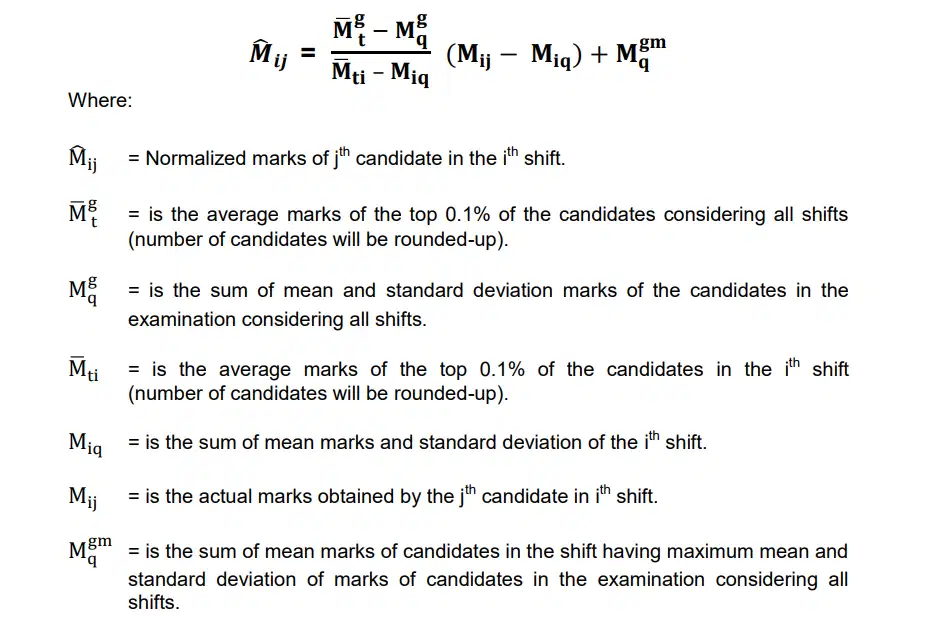What are the exact AFCAT Exam Timings?
As mentioned, the online test of AFCAT 2023 is conducted for two hours. EKT is held for 45 minutes. The exam timings for AFCAT 2023 is mentioned as per the table given below:
Activity | Shift 1 | Shift 2 |
Reporting time of the Candidate | 7.30 am | 12.30 pm |
Verification of admit card & ID Proof, Biometrics, Photo/ Thumb Impression/ Sign on Attendance Sheet & candidate seating in exam hall | 7.30 am to 9.30 am | 12.30 am to 2 pm |
Reading of instructions by candidates | 9.30 am to 9.45 am | 2 pm to 2.15 pm |
AFCAT exam | 9.45 am to 11.45 am | 2.15 pm to 4.15 pm |
What is the total number of papers in AFCAT 2025?
The AFCAT 2025 exam will consist of four papers as per the AFCAT Exam Pattern. These papers cover General Awareness, Verbal Ability in English, Numerical Ability, and Reasoning, along with the Military Aptitude Test. The duration of the AFCAT paper is 150 minutes, equivalent to two hours. To qualify in the AFCAT exam, candidates should aim to score between 140 to 190 marks out of the total 300 marks.
What is the marking scheme of EKT?
The Engineering Knowledge Test (EKT) is an essential component of the AFCAT exam for those aiming to join the technical branches of the Indian Air Force. This test employs a negative marking system. Specifically, you receive 3 marks for each correct response, but you lose 1 mark for every incorrect answer. If you choose not to answer a question, no marks are awarded or deducted. Therefore, it's often more advantageous to attempt a question, even if you are unsure, rather than skipping it entirely.
What type of questions are asked in AFCAT?
The AFCAT exam covers a wide range of topics, including:
- English: Grammar, vocabulary, comprehension, and writing skills
- General Awareness: Current affairs, history, geography, science, and technology
- Numerical Ability: Basic math operations, arithmetic, and algebra
- Reasoning and Military Aptitude Test: Verbal and non-verbal reasoning, problem-solving, and logical thinking
What is the duration of AFCAT 2025?
The AFCAT exam lasts for two hours, which is 120 minutes. During this time, you'll be assessed on several subjects such as General Awareness, English, Numerical Ability, and Reasoning and Military Aptitude.
Will AFCAT be conducted in any other language?
The AFCAT 2 (Air Force Common Admission Test) for 2024 will be held exclusively in English. This information is confirmed by the official syllabus and notifications issued for the exam.
Is there any negative marking for unattempted questions in AFCAT 2025?
No, there is no penalty for leaving questions unanswered in AFCAT 2025. You lose one mark for every wrong answer, but you gain three marks for each correct one. Therefore, concentrate on answering only when you are confident and skip the questions you are unsure about to avoid negative marking.
Is the marking scheme of EKT same as that of AFCAT?
Yes, marking scheme of both EKT and AFCAT is same. 3 mark will be granted for each correct answer while one mark will be deducted for each incorrect answer.
What are the maximum marks for AFCAT 2025?
The AFCAT 2025 exam is scored out of 300 marks. It includes 100 questions, covering topics such as General Awareness, Verbal Ability, Reasoning, and Military Aptitude.
In which mode will AFCAT 2025 be conducted?
The AFCAT 2025 exam will be administered exclusively online. Candidates will complete the computer-based test at specified exam centres.
How many sections are there in AFCAT 2025?
The AFCAT exam for 2025 does not have official sections but assesses candidates in five key areas: English, General Awareness, Numerical Ability, Reasoning, and Military Aptitude. While the exam is not formally segmented, these subjects are typically studied in clusters to prepare effectively.
How many questions will be asked in AFCAT?
A total of 100 questions will be asked in the AFCAT exam.












